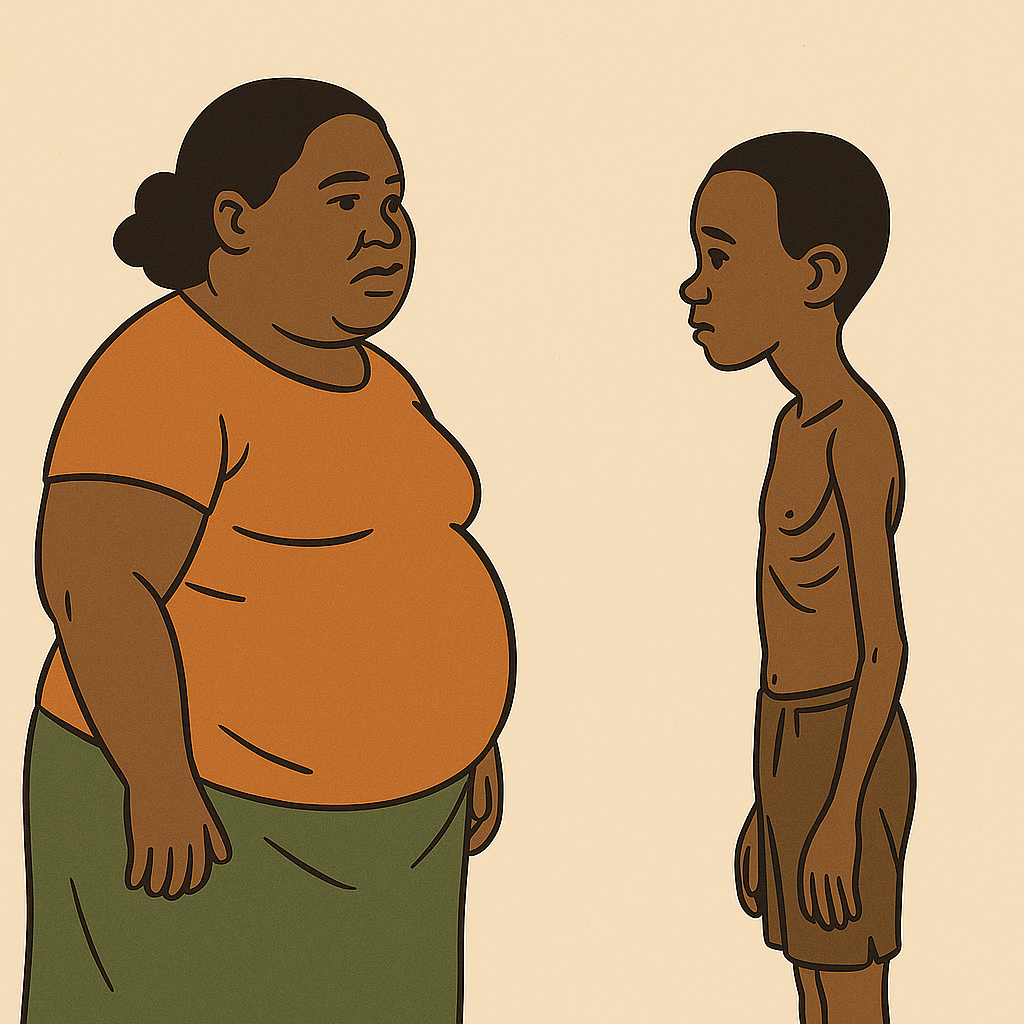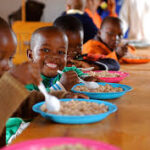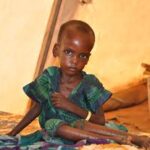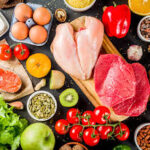The Double Burden in Africa: Obesity and Undernutrition

Africa is facing a silent but serious health challenge—the double burden of malnutrition. This means that both undernutrition (too little food or nutrients) and overnutrition (too much unhealthy food) exist side by side. In some households, children are stunted from poor diets while adults struggle with obesity caused by processed foods. This paradox is shaping Africa’s health future, with devastating consequences if not addressed.
1. Understanding the Double Burden
The double burden occurs when:
-
Undernutrition leads to stunting, wasting, and micronutrient deficiencies.
-
Overnutrition causes obesity, diabetes, and heart disease.
According to the World Health Organization, Africa is one of the few regions where child undernutrition and adult obesity are rising at the same time.
2. Causes of the Double Burden in Africa
a) Poverty and Inequality
Low-income families often cannot afford diverse, nutritious foods. Instead, they depend on cheap, starchy staples like cassava, maize, or rice.
b) Urbanization and Fast Food Culture
Cities are filled with fried foods, sugary drinks, and processed snacks. These meals are convenient but contribute to obesity.
c) Nutrition Transition
Traditional African diets rich in grains, legumes, and vegetables are being replaced by fast food and imported processed products.
d) Climate Change and Agriculture
Droughts, floods, and poor farming practices reduce food diversity, leading to both scarcity and reliance on low-cost, low-nutrient foods.
e) Lack of Nutrition Education
Many families are unaware of the importance of balanced meals or portion control, leading to poor food choices.
3. Consequences of the Double Burden
-
Child Stunting: Over 30% of children in Africa are too short for their age due to chronic undernutrition.
-
Obesity Epidemic: Adult obesity is rising, especially among women in urban areas.
-
Increased Healthcare Costs: Treating diabetes, hypertension, and heart disease strains already weak health systems.
-
Cycle of Poverty: Malnourished children grow into less productive adults, keeping families trapped in poverty.
4. Solutions to Africa’s Double Burden
a) Promoting Traditional African Diets
Local foods like millet, sorghum, moringa, groundnuts, and beans are nutrient-dense and affordable. Encouraging their use can reduce reliance on processed foods.
b) Public Health Campaigns
Governments and NGOs can educate families about balanced meals, portion sizes, and the dangers of processed foods.
c) School Feeding Programs
Nutritious meals in schools help children grow well and improve learning outcomes.
d) Food Fortification
Adding iron, iodine, and vitamins to staple foods (flour, salt, oil) helps fight hidden hunger.
e) Policy and Regulation
Taxes on sugary drinks, clear food labeling, and restrictions on unhealthy food advertising can reduce obesity rates.
f) Support for Small Farmers
Investing in local agriculture ensures diverse food supply and empowers communities to eat healthier.
5. Hope and Success Stories
Countries like South Africa and Kenya are implementing sugar taxes and nutrition policies. Rwanda and Ethiopia have scaled up community-based nutrition programs. These steps show that with strong leadership, Africa can tackle the double burden.
Conclusion
The double burden of malnutrition threatens Africa’s health and development. By promoting traditional diets, improving education, and strengthening policies, Africa can ensure that both hunger and obesity are reduced. The solution lies in a balance between heritage and modern health awareness.
Written by Fawzi Rufai, Medically Reviewed by Sesan Kareem



